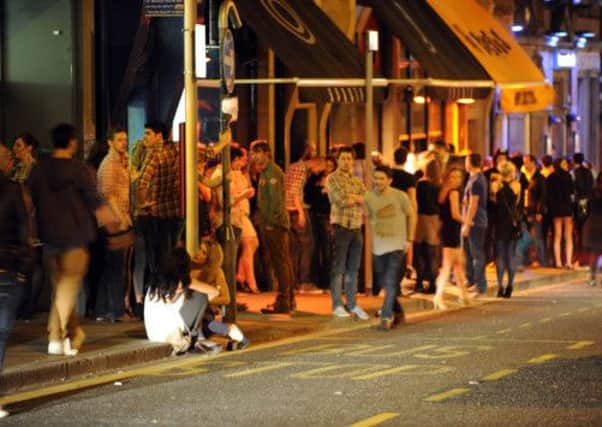True colours? Reconfiguring the region’s city of socialising


Independent bars have been the lifeblood of the night-time economy of Leeds for the last 10 to 15 years, but the local authority seems to think they could soon become a victim of their own success.
Areas such as Call Lane, Merrion Street and New Briggate have blossomed thanks to start-up ventures that have created an unprecedented city of socialising for Yorkshire.
Advertisement
Hide AdAdvertisement
Hide AdBut in recent years some of Leeds’s most popular destinations have been shrouded in controversy due to troubling crime statistics, which Leeds City Council and West Yorkshire Police are still wrestling with.
The council’s latest bid to stem trouble and direct the growth of the bar scene could see Call Lane – the focal point of this new mode of socialising – designated a “red area”, where all licensing applications for new bars are refused out of hand.
Some of the founding fathers of the bar scene agree that the way the various city centre districts are controlled needs to be addressed.
Ged Feltham, has been running bars on Call Lane for 16 years. He said: “If the city needs to continue to develop nice bars and restaurants, it doesn’t all have to be down one street.
Advertisement
Hide AdAdvertisement
Hide Ad“It’s beyond saturation on Call Lane, if you look at the evidence you have got the traffic light system that’s been in place for ages and there’s not a single operator down there that the police would classify as a nuisance. But then they say the area is a nuisance, which suggests to me it’s not the operators but the overcrowding. We’ve been pointing out for quite a while that there are too many bars.”
Among the council’s planned Statement of Licensing Policy changes, which are out to public consultation until August 28, Merrion Street along with Albion Street, New Briggate, Greek Street and Boar Lane would be designated “amber areas”, where police would look at applications and make representations before new bars are considered. The rest of the city centre would be designated green, encouraging good quality applications.
Mal Evans is director and co-founder of rock bar Mojo on Merrion Street
He said: “It’s multi-faceted in Leeds now. It used to be that we had an award-winning independent bar scene where there was a rivalry between us but we were all working for the city as a whole. Apart from what was going on with that, there was Greek Street and that was about it, but now we have corporates that act more as independents such as with The Alchemist and The Botanist inside the Trinity Leeds shopping and leisure complex.”
Advertisement
Hide AdAdvertisement
Hide AdWhen it comes to maintaining law and order in the city, he feels problems stem more than ever from the behaviour of drinkers, as “pre-loading” with alcohol before going to bars continues to bring trouble. He says it’s something licensees shouldn’t have to take complete responsibility for.
He added: “That’s not the licensee’s fault – the public have a duty to themselves.”
Mal even cites models such as that in Louisville, USA, where the authorities actively seek to restrict bars to certain areas so to have greater control over policing.
Police action, such as working with the council to enforce a late night ban on all vehicles driving through Call Lane on Fridays, Saturday and Sundays since last year, has already seen nightlife-related crime fall dramatically.
Advertisement
Hide AdAdvertisement
Hide AdChief Insp Steve Palmer, city centre commander, said: “We work closely with licensees who in key local enterprise zones provide staff to work alongside police officers to increase visibility and improve safety in the city.
“Measures like these have helped to reduce violent crime in the city centre by 10 per cent year-on-year over the last three years.”
Coun Rebecca Charlwood, chair of the council’s licensing committee, said: “The Cumulative Impact Policy effectively means that applications or variations will be refused in certain predetermined areas.
“In these areas, it’s up to the applicant to show what they would do to minimise the impact of their application.
Advertisement
Hide AdAdvertisement
Hide Ad“While refusal is assumed, it’s still up to the licensing committee to make final determination based on the application and issues before them so it’s not always going to be a done deal.”
She said the council wants a vibrant nightlife that supports the local economy that is also safe, minimises crime, disorder and anti-social behaviour.
To give your opinion on the proposed licensing changes email [email protected] or visit www.leeds.gov.uk for information.